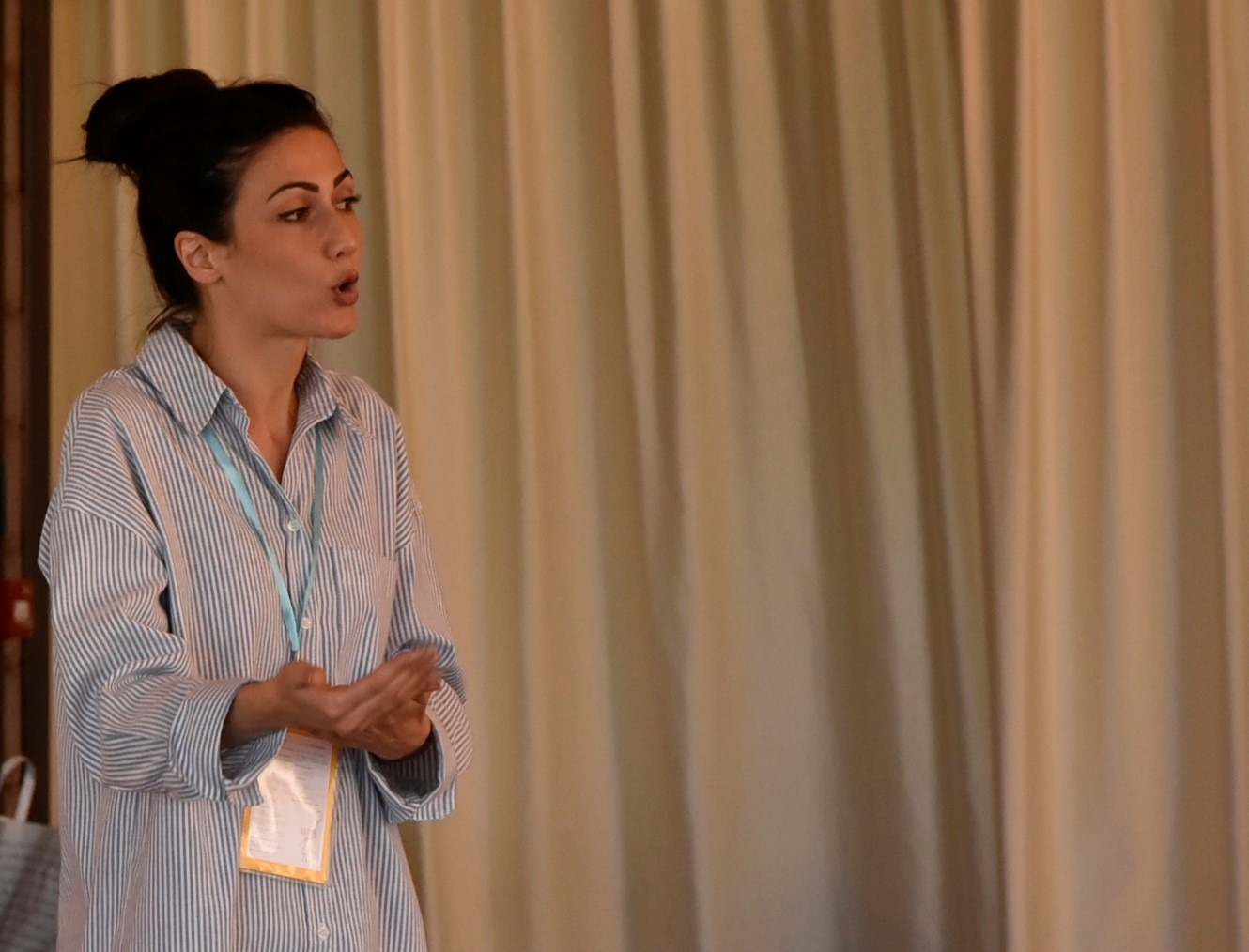Erasmus+ elements for schools and non-profit organisations
Enjoying Rome while taking the first steps in the frame of the European Programme for Education, Training, Youth and Sport in Europe

Have you been told that Erasmus+ is not just international mobility for study purposes, but you don’t know how to leverage it for the development of your organization? This course provides the skills, knowledge and tools necessary to develop successful project proposals within the Erasmus+program, giving you the opportunity to innovate by collaborating with partners from every corner of Europe and beyond, focusing on accessible “Small scale” initiatives.
Target group

School principals and teachers from all education levels,
Staff and volunteers of non-profit organizations,
Public administration officials,
Aspiring project managers
European Project specialis
Why should you choose us?

- Visiting Rome is always a good choice!
- We offer an edutainment approach,
- The course contents are innovative, relevant, and clearly traceable to their use in work context
- Participants will come into contact with different practices and experiences, benefiting from intercultural learning and establishing contacts for future cooperation and exchanges
- Our teachers’ work is inspired by the Principles of the Pedagogy of Beauty©, shifting the focus from mere transmission of knowledge to building meaningful and empathic relationships.
Learning outcomes:
At the end of the course, participants will be able to:
- Know the structure, the political and value context and the characteristics of the Erasmus+ programme
- Understand and identify the opportunities offered by the Erasmus+ programme for the development and innovation of their organisation
- Structure a meaningful and relevant project proposal, starting from a structured needs analysis (of educational institutions, students, trainers etc.)
- Build a relevant project partnership as well as strong and complementary collaboration networks with key actors and stakeholders
- Elaborate and manage the project budget in a sustainable way
- Write effective project proposals with a focus on small-scale actions
- Know the application deadlines and procedures
- Promote and disseminate the results of Erasmus+ projects effectively, contributing to the sharing of good practice
- Integrate innovation in Erasmus+ projects, favouring the updating and evolution of education and training at national and European level
- Ensure the long-term sustainability of projects, considering models of continuity and impact over time
- Foster the development of networks between relevant actors, facilitating the exchange of experience, knowledge and ideas with other professionals and course participants-
Methodology
Using the Project Cycle Management approach, the course will combine theoretical insights, studies of successful projects and sessions devoted to project formulation.
From a theoretical point of view, participants will explore the context of European project design, identifying the main policies underlying the Erasmus+ Programme, as well as its objectives and budget. The actors involved and their role in project implementation will be presented. Key tools (EU login, OID, Application form) will be examined so that participants learn to navigate independently through the technical and administrative requirements for participation in the programme. The different Key Actions will be analysed in detail, with a focus on Small Scale Partnerships, which aim to reach grassroots organisations, new programme participants and less experienced organisations, with a view to reducing barriers to programme access for organisations with less organisational capacity.
The exercise phase will enable participants to transform an idea into a solid project concept, based on a thorough needs analysis and equally relevant partnership building. Participants will be guided through the exploration and compilation of a concrete project form, and will gain an overview of the project implementation phases, including the management of activities, resources and financial reporting.
Day-by-day programme
Day 1
- Welcome and mutual presentation
- Ice-breaking activities
- European values and course related policies
- European lunch
- Enjoying Rome city centre
Day 2
- The Erasmus+ Programme: priorities, objectives, budget, actors
- EU login, PIC, OID, Application form
- The Key Actions
- Focus: the Small-Scale Partnerships
- Examples and success stories
Day 3
- The project idea
- The partnership
- Implementation and reporting
- Mutual exchange of experiences and best practices
Day 4
- From Concept note to Application form
- Exercise
- Focus on contents’ application in different contexts
Day 5
- Further steps to follow up
- Feedback
- Certificates cerimony
- Participants departure

Course pre-registration is free of charge!
Just fill the form expressing your interest. Only after enough pre-registrations are made, we can confirm the course and start planning our time together!
Trainer

Irene De Laurentiis
A senior project manager, Irene specialises in Project Cycle Management (PCM), and holds a Master's degree in European Design and Business Internationalisation. She lived for years between France and Belgium, working at the European Parliament and the European Network of Cities and Regions for the Social Economy. Since 2017, she has been practising her profession in Italy, collaborating with public bodies and private organisations in the implementation of project initiatives pertaining to the fields of education and training, with a view to lifelong, sustainable and inclusive learning. She is the winner of the public selection as Senior European Project Expert announced by the Region of Abruzzo, and of the call for contributions "Urban Regeneration and Community Engagement 2022" promoted by the Embassy of the United States of America in Italy. She is currently project manager and trainer for CIAPE
Date and Place
9-13 December 2024 CIAPE seat Pz.le Roberto Ardigó 30 Rome
Price
400 € per person Including: training and tuition fees, access to training material, ice-breaking and sight-seeing activities, coffee-breaks, administration and organisational costs, Certificate of attendance, Mobility and Europass documents
Language
English
